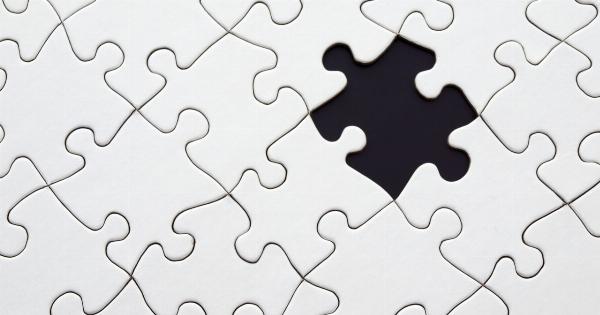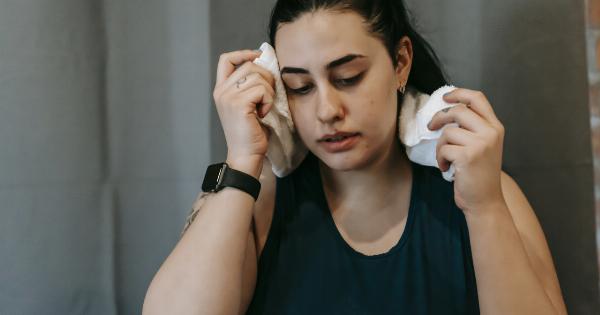Libido, or sexual desire, is a fundamental aspect of human nature and plays a crucial role in our intimate relationships. For men, a healthy libido is often associated with masculinity and vitality.
However, it is not uncommon for some men to experience a decline in their sexual desire, leading to a phenomenon known as “low libido.” This mysterious condition can have various underlying causes and can significantly impact a man’s quality of life. In this article, we will explore the intricacies of men’s low libido and discuss potential causes, symptoms, and possible treatments.
Understanding Libido and Low Libido
Before delving into the topic of men’s low libido, it is vital to understand what libido is and how it functions. Libido refers to a person’s overall sexual drive or desire for sexual activity.
It is influenced by various factors, including hormonal levels, mental and emotional state, relationship dynamics, and overall health.
For men, testosterone, the primary male sex hormone, plays a crucial role in regulating libido. Higher levels of testosterone are generally associated with increased sexual desire.
However, it is essential to recognize that libido varies greatly among individuals, influenced by both biological and psychosocial factors.
Low libido, also referred to as hypoactive sexual desire disorder (HSDD), occurs when a male experiences a persistent or recurrent lack of sexual interest or desire that causes personal distress.
This condition can affect men of all ages, although it becomes more prevalent as they age.
The Potential Causes of Men’s Low Libido
Men’s low libido can have various causes, ranging from physical health issues to psychological and lifestyle factors. Here are some potential triggers and underlying conditions that may contribute to this mysterious phenomenon:.
1. Hormonal Imbalances:
Hormonal imbalances, particularly low testosterone levels, are often associated with reduced libido in men. Testosterone levels naturally decline with age, leading to a decrease in sexual desire.
However, hormonal imbalances can also result from certain medical conditions, such as hypogonadism (underactive testes) or thyroid disorders.
2. Chronic Illnesses:
Chronic illnesses like diabetes, heart disease, and kidney disease can negatively affect sexual desire. These conditions may contribute to fatigue, pain, or emotional distress, all of which can impact a man’s libido.
3. Medications and Substance Abuse:
Certain medications, such as antidepressants, blood pressure medications, or some prostate medications, can have side effects that reduce libido.
Additionally, substance abuse, including excessive alcohol consumption and recreational drug use, can also take a toll on sexual desire.
4. Psychological Factors:
Mental health issues, such as depression, anxiety, stress, or a history of sexual trauma, can significantly diminish libido. Relationship problems, lack of emotional intimacy, or unresolved conflicts can also affect sexual desire.
5. Fatigue and Sleep Disorders:
Exhaustion, sleep deprivation, and sleep disorders can contribute to low libido in men. Lack of quality sleep interferes with hormonal balance and overall energy levels, impacting sexual desire.
6. Sedentary Lifestyle and Obesity:
A sedentary lifestyle, combined with obesity, can have a detrimental effect on libido. Lack of physical activity and being overweight or obese can lead to decreased testosterone levels and poor body image, affecting sexual desire.
7. Aging:
As men age, their hormone levels naturally decline, leading to a decrease in libido. Additionally, older age often brings other health conditions, medications, and lifestyle changes that can further contribute to low sexual desire.
8. Relationship and Sexual Dissatisfaction:
A lack of emotional and physical satisfaction within a relationship, including unresolved conflicts or poor communication, can impact a man’s libido.
Relationship stagnation or infidelity-related issues can also contribute to decreased sexual desire.
9. Performance Anxiety:
The fear of not meeting sexual expectations, concerns about erectile dysfunction or premature ejaculation, and anxiety related to sexual performance can inhibit sexual desire in men.
Performance anxiety creates stress and pressure that may result in avoiding sexual encounters altogether.
Symptoms and Diagnosis
Recognizing the symptoms of low libido in men is crucial in determining the appropriate course of action. Here are some common signs that may indicate a decrease in sexual desire:.
1. Reduced sexual thoughts and fantasies
2. Lack of interest in sexual activities
3. Difficulty getting or maintaining an erection
4. Decreased sexual satisfaction
5. Reduced vigor or enthusiasm towards intimacy
6. Emotional distress or relationship conflicts due to low libido
If you or your partner experience these symptoms, it is advisable to seek medical attention from a healthcare professional specializing in sexual health.
The diagnosis of low libido involves evaluating physical health, reviewing medications, assessing mental health, and analyzing the individual’s relationship dynamics.
Treatment Options for Men’s Low Libido
Fortunately, men’s low libido can often be effectively treated once the underlying cause is identified. Here are some potential treatment options that healthcare professionals may consider:.
1. Hormone Replacement Therapy:
In cases where hormone imbalances, particularly low testosterone levels, are the primary cause of low libido, hormone replacement therapy (HRT) may be recommended.
HRT can help restore hormone levels and improve sexual desire, but it should only be pursued under the guidance of a healthcare professional.
2. Lifestyle Modifications:
Adopting a healthy lifestyle can significantly improve libido. Regular exercise, maintaining a balanced diet, managing stress, and getting enough quality sleep can positively impact sexual desire.
Reducing alcohol consumption, quitting smoking, and avoiding recreational drug use are also important steps.
3. Counseling or Therapy:
If psychological issues or relationship problems contribute to low libido, individual or couples counseling may be beneficial.
A trained therapist can help address underlying emotional concerns, improve communication, and explore strategies to enhance intimacy and sexual satisfaction.
4. Medication Adjustments:
In some cases, switching medications or adjusting dosages can alleviate the side effects that suppress libido. It is crucial to consult with a healthcare professional before making any adjustments to prescribed medications.
5. Treatment of Underlying Conditions:
Addressing and managing chronic illnesses, such as diabetes or heart disease, can positively impact sexual desire. Treating specific health conditions or seeking specialized medical care can help improve overall well-being and, consequently, libido.
Conclusion
Men’s low libido is undoubtedly a mysterious and complex condition that can significantly impact a man’s emotional well-being and intimate relationships.
Although it can stem from various physical, psychological, and lifestyle-related factors, the good news is that most cases of low libido are treatable. A comprehensive approach involving medical evaluation, lifestyle modifications, and counseling can help restore sexual desire and improve overall quality of life.
Remember, if you or your partner are experiencing low libido, seeking support from healthcare professionals is essential in addressing and resolving this condition.
























